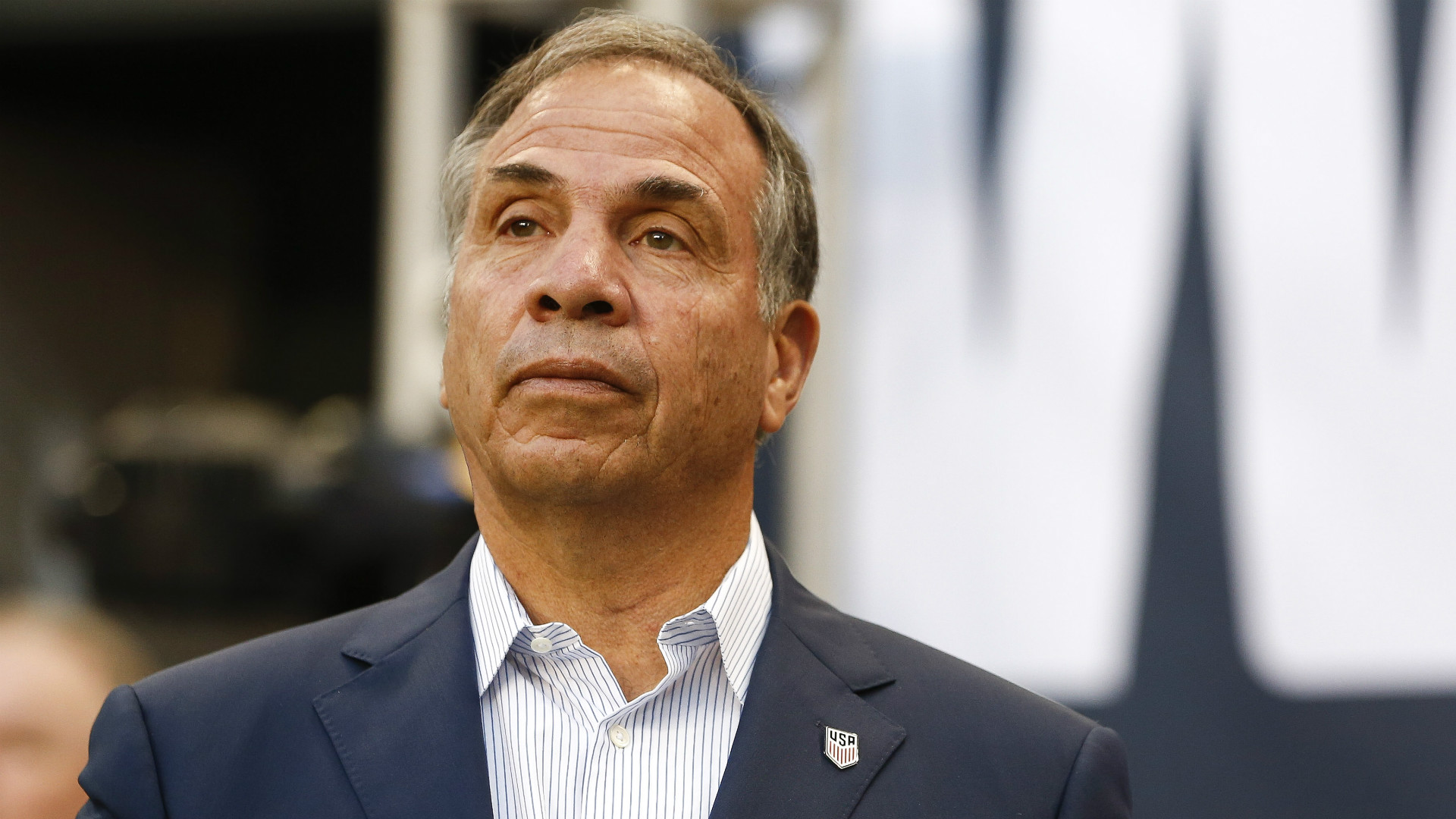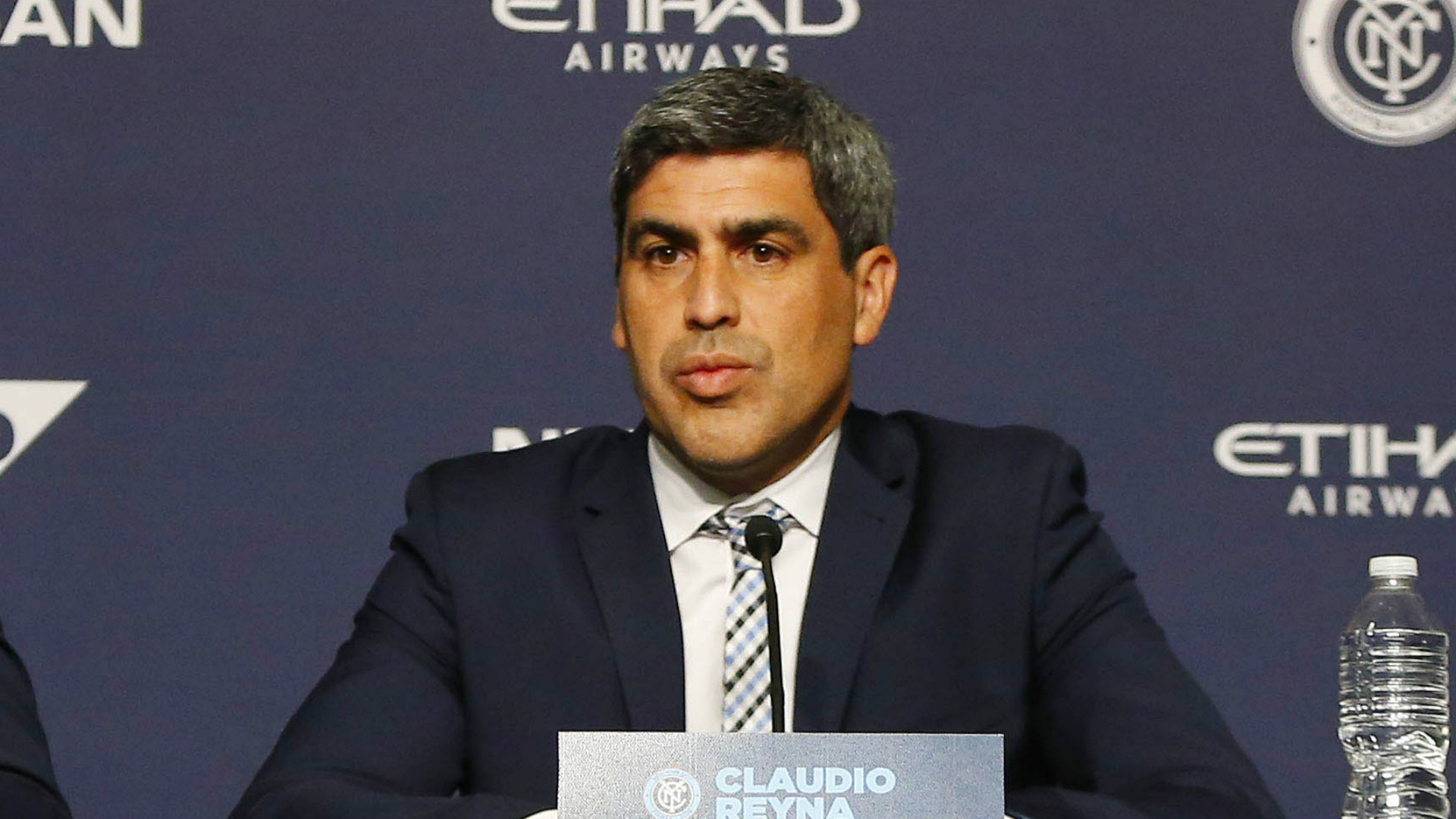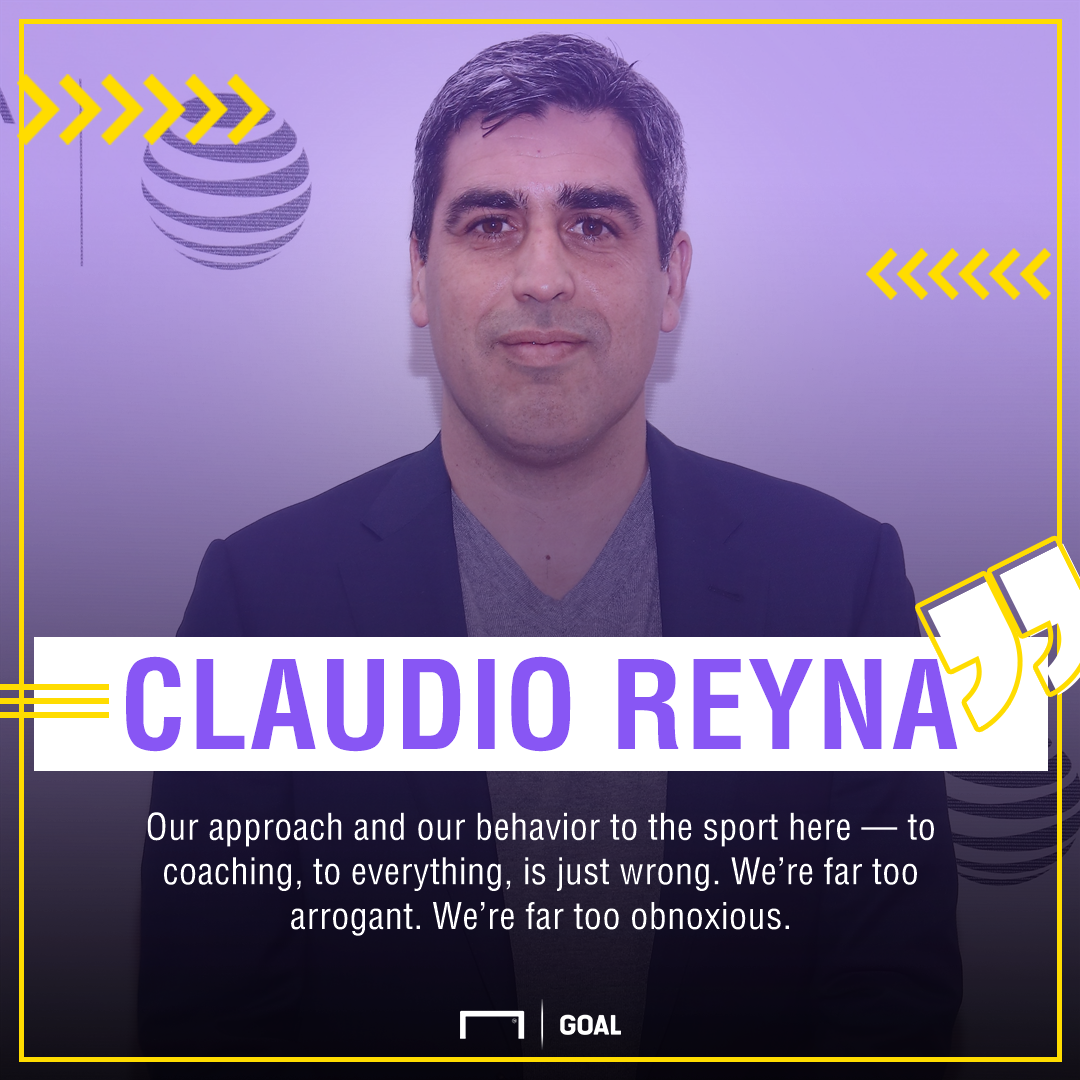Reyna on US soccer: ‘We’re far too arrogant, far too obnoxious’ – Goal.com
NEW YORK — Compared to other high-profile names in American soccer, former U.S. national team captain Claudio Reyna is a man of few words. While some have become television personalities and others have gone into coaching, Reyna has taken on the role of sporting director of New York City FC, where he goes about his work in relative anonymity, seldom speaking to the media. He generally staying behind the scenes as he looks to build a championship team.
It is that normally understated demeanor that made Reyna’s words even more eye opening as he sounded off on what he sees as a systemic problem in American soccer. With the stunning disappointment of the U.S. men’s national team failing to qualify for the World Cup for the first time since 1986 having occurred just a week earlier, Reyna didn’t mince any words.
“Our approach and our behavior to the sport here — to coaching, to everything, is just wrong,” Reyna told Goal on Tuesday. “We’re far too arrogant. We’re far too obnoxious. We are egotistical having never won anything or done anything, and that’s not the case around the world.
“You travel to Spain, Argentina, Germany and you run into coaches and sporting directors and there’s a humility about their work that doesn’t exist here, and that’s, for me, seeing it, is to me a big concern.
“When you have a disappointment like last week, and we’ve had past disappointments as well, and we’ll have disappointments in the future, but what we need to understand that it’s for me behavioral.
He added: “We have coaches who think they’re better than they are. Across the board, we just think we do things better than we really do. I mean in every way. Whether it’s broadcasting, or media, coaching, we’re just not as far along as we tell ourselves we are.
“We need a little honesty, and hopefully this brought it. I think it’s far too late. I think we’ve been asleep at the wheel for a little bit too long.”

Reyna enjoyed a stellar playing career, having represented teams in England, Germany and Scotland, serving as captain of several of them. That career helped expose him to a wide variety of approaches to the game. Since his retirement he has continued to work in the game, spending time working within U.S. Soccer before his move to NYCFC.
What he has seen since settling back in the United States is a culture of arrogance, along with a seeming failure to learn from other countries and cultures.
“We have all these countries around the world we can learn from, and you go over there and you’re not going to see different training sessions,” Reyna said. “You’re going to see good games, and poor games, like in any league across the world.
“But the one thing that we haven’t realized, I think, when we have our American soccer people go abroad to learn, I don’t think they see the behaviors of the people and how they coach in their day-to-day work. That’s the shake-up I hope people realize more than anything.
“You go to a U-14 and U-15 coach in Spain, and they are 10 times more humble than a U-14 or U-15 coach in Connecticut, New Jersey or New York, who thinks they’re the next Pep Guardiola or Patrick Vieira.
“Until we realize that — that we’re not as good as we think we are at all levels — then I think we’re going to continue being what we are, which is mediocre.”

While the game of soccer has grown in many ways in the United States, Reyna believes that the sport hasn’t necessarily improved along with that growth.
“What I think has happened in the past 10 years is we’re confusing investment, expansion, growth, (U.S. Development Academy), and all these other things with progress,” Reyna said. “All these things have sort of created a feeling that we’re progressing, but I call it expanding, growth and more fans.
“From the general growth side it’s happening, but are we really progressing? When I look around at certain levels I don’t see progress happening.”
Reyna isn’t the first former USMNT standout to speak out in the wake of the national team’s shocking failure to qualify for the 2018 World Cup, but he’s hopeful that an increased dialogue will lead to some real changes.
“I remember the great Johan Cruyff would say something about Dutch football, or Franz Beckenbauer in Germany, and when other big players and coaches spoke out and were honest, it shook things up and make people ask, ‘How are we teaching the game to our youth? How are we playing the game? What’s the competition like?’
“We don’t have those kind of serious discussions here. We just seem to talk, but never really make any significant changes.”

The U.S. team’s failure to qualify for the World Cup has led to a serious backlash, and raised real questions about the state of the game, and how to improve.
“People are sitting together and thinking about strategies and how we’re going to get better,” Reyna said. “We need a little humility and modesty at the table. Unfortunately we have a little too much ‘Mr. I Know Everything’, ‘Mr. Arrogance’, ‘Mr. Obnoxious’, ‘Mr. Loud’, and when those get together nothing happens.”
As harsh as Reyna’s comments may sound, he also sees positives in the state of American soccer, particularly the quality of talent being developed, such as the standouts leading the current U.S. Under-17 national team into the World Cup quarterfinals. Reyna’s youngest son, Giovanni, 14, is one of the top young prospects in the American soccer talent pipeline.
“There’s good players at every age group. There’s some very good players in this country,” Reyna said. “As supporters of these players, whether it’s coaches, sporting directors, team presidents, we need to continue to push ourselves to make sure they have the best environment to develop because the talent is here. One thing I’ll never say is we don’t have good players, because we do.
“There’s a lot of positives despite the disappointing result that we had last week,” Reyna said. “I think we’re all embarrassed. I’m embarrassed as a former player that I have to go around and have people make fun of us, and get texts from my friends in Europe who remind me we’ll be on [vacation] next summer.
“I can laugh, but it hurts. It definitely hurts.”



